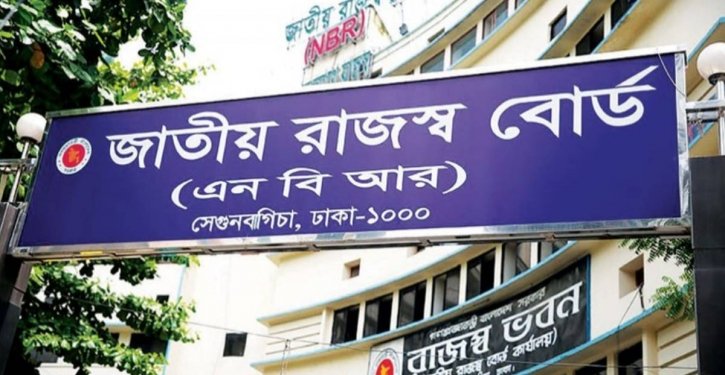Asif Showkat Kallol: As public expenditures expand on multiple fronts, the revenue generation target outlay of the National Board of Revenue has moderately been raised for the next fiscal year by Tk 40,000 crore to Tk 370,000 crore.
Officials argue as the country tamed coronavirus, businesses will increase leading NBR to earn more than the existing outlay of Tk 330,000 crore. The upward adjustment in revenue collection means a 12 percent hike.
Meanwhile, in the next fiscal year the government’s total income target has been estimated at Tk 4,33,000 crore, up by 11 percent from the revised outlay of Tk 3,89,000 crore.
The next income outlay of the state is estimated to be 9.8 percent of GDP.
“Bangladesh economy will definitely be back to business banking on primarily stacks of international work orders for apparels,” said an official of the finance ministry who is involved in preparing the 2022-23 national budget.
He said due to pandemic, they could not change this fiscal year’s revenue generation as VAT and other duties were cut to make imports of edible oil and other essentials smooth.
The official further said that the financial conditions of Bangladesh Petroleum Corporation and Bangladesh Power Development Board are not “good” and that the finance division of his ministry is not able to accumulate various idle funds for different reasons.
“Therefore, the government has taken initiatives to increase the non-tax revenue next fiscal year.”
NBR will get more money from 5G spectrum auctioning. Prospects of revenue earning will definitely increase if the ongoing reforms like automation of VAT payment could be completed, the finance ministry official added.
As per the proposal that was submitted to the coordination council and budget resource committee meetings revealed that the non-tax revenue target would be worth Tk 45,000 crore from the existing Tk 43,000 crore which would mean a 5 percent rise.
Finance adviser to a past caretaker government Dr AB Mirza Azizul Islam told Business Insider Bangladesh that the government should not impose any extra tax burden on people and businesses in the ensuing budget because the next fiscal year will be a ‘recovery year’ for the economy as it emerges from covid-19 pandemic.
Economic think tank of the country Center for Policy Dialogue recently recommended that instead of setting lofty earning targets for the next fiscal that will have a high risk of missing the annual outlay target, officials should deploy a realistic approach considering the current macroeconomic trends.

